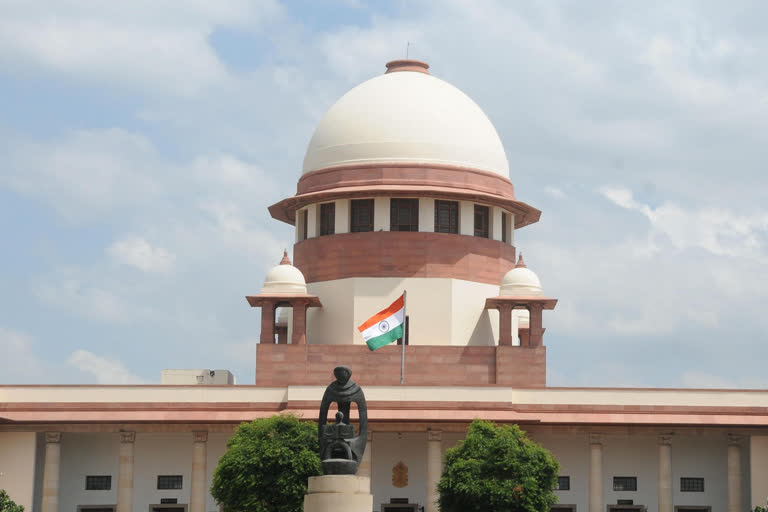New Delhi: The Supreme Court on Thursday allowed a Hindu litigant in the decades-old Ram Janmbhoomi-Babri Masjid land dispute case to file a written note seeking to declare the 2.77-acre site at Ayodhya as government land if the court holds that neither the Hindu nor the Muslim side has proved ownership.
Umesh Chandra Pandey, who was made a party (defendant) in a lawsuit filed in 1961 by the UP Sunni Central Wakf Board, mentioned the Ayodhya case before a bench headed by Chief Justice Ranjan Gogoi and sought its nod for filing the written note on 'moulding of reliefs' or narrowing down of the issues raised.
A 5-judge Constitution bench headed by the CJI had reserved the verdict on October 16 after concluding the 40-day-long hearing in the politically sensitive case and had asked the litigating parties to submit their written note by October 19 on "moulding of reliefs" so that the court can narrow down the issues needed to be adjudicated upon in the vexatious issue.
When senior advocate V Shekhar, appearing for Pandey, sought the permission to file the written note Thursday, after the expiry of the deadline, the bench observed: "We thought the Ayodhya case is over".
However, the bench, also comprising Justices S A Bobde and S A Nazeer, allowed the filing of the written note.
Pandey, in his note, said the entire territory of Awadh was annexed by Lord Dalhousie in 1856 after dethroning of 'Nawab' and later a proclamation was issued by Lord Canning confiscating the proprietary right of Awadh land to the British government on March 3, 1858.
Hence, the disputed land at Ayodhya became 'nazul' (government) land and the same position remains as on today which has been accepted by Muslim parties also, it said.
"While moulding the relief, this court may consider that in the event of plaintiffs (the deity through next friend and others) in suit no. 5 and plaintiffs in suit number 4 (Sunni Wakf Board and others) failing to prove the title to the disputed land, the court may declare that the title (ownership) in respect of disputed land belongs to the state and it is for the state to decide what to do with the disputed land ," it said.
Earlier, the apex court on Tuesday had allowed 'Nirvani Akahara' to file the written note seeking the "right to manage worship of the deity" as 'shebait' (devotee) at the site.
Both 'Nirmohi Akahara' and it's rival 'Nirvani Akahara' are seeking the right to manage and offer 'puja' at the birthplace of deity 'Ram Lalla Virajman' at the site.
Prior to this, Muslim parties, including the Sunni Wakf Board, had filed the written note on the moulding of relief in Supreme Court and had said the verdict in the Ayodhya land dispute case will impact "future generations" and have "consequences" for the country's polity.
On Saturday, several Hindu parties had filed their written submissions in the Supreme Court with the counsel for the deity 'Ram Lalla' asserting that Hindus have been worshipping at the disputed area "since time immemorial" and the birthplace of Lord Ram is "non-negotiable".
Besides the deity, other Hindu parties -- Nirmohi Akhara, All India Hindu Mahasabha and devotee Visharad -- had also filed their written notes on Saturday in this case.
The high voltage hearing in the Ram Janambhoomi-Babri Masjid dispute involving 2.77 acres of land is the second-longest after the landmark Keshvanand Bharti case in 1973 during which the proceedings for propounding the doctrine of the basic structure of the Constitution continued for 68 days.
The hearing on the validity of Aadhaar scheme lasted for 38 days in the top court, which came into existence in 1950.
Also read: With just days to go for Diwali, lull at Sadar Bazaar as sale of firecrackers takes a hit



